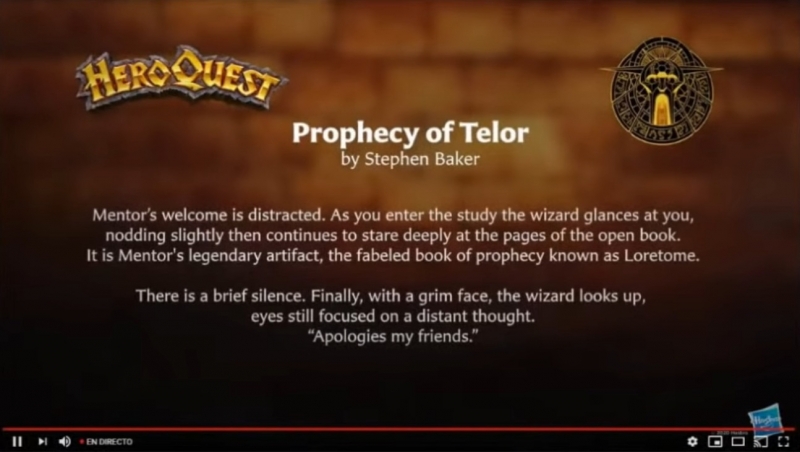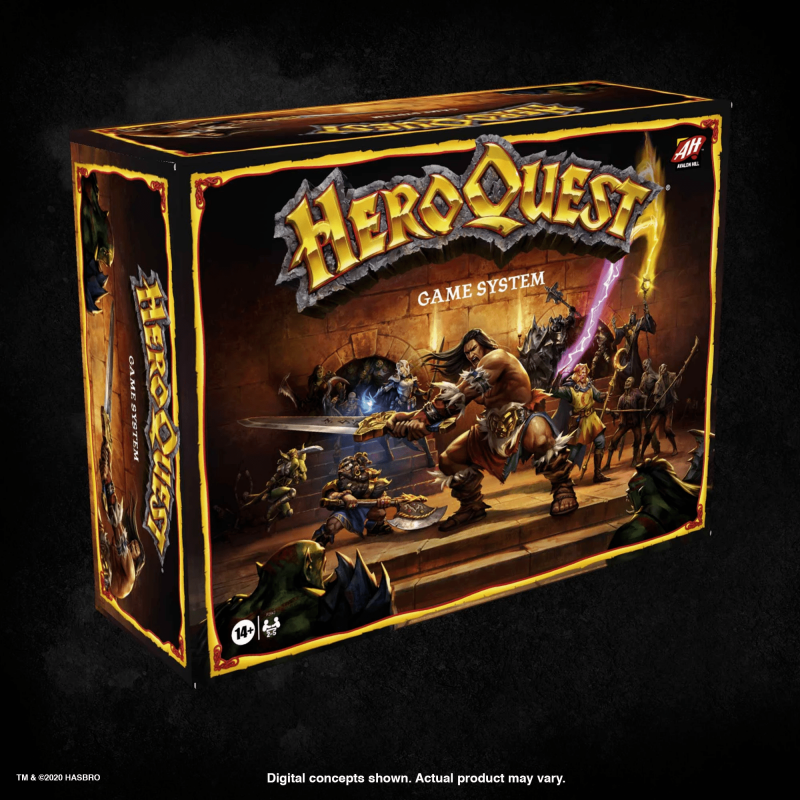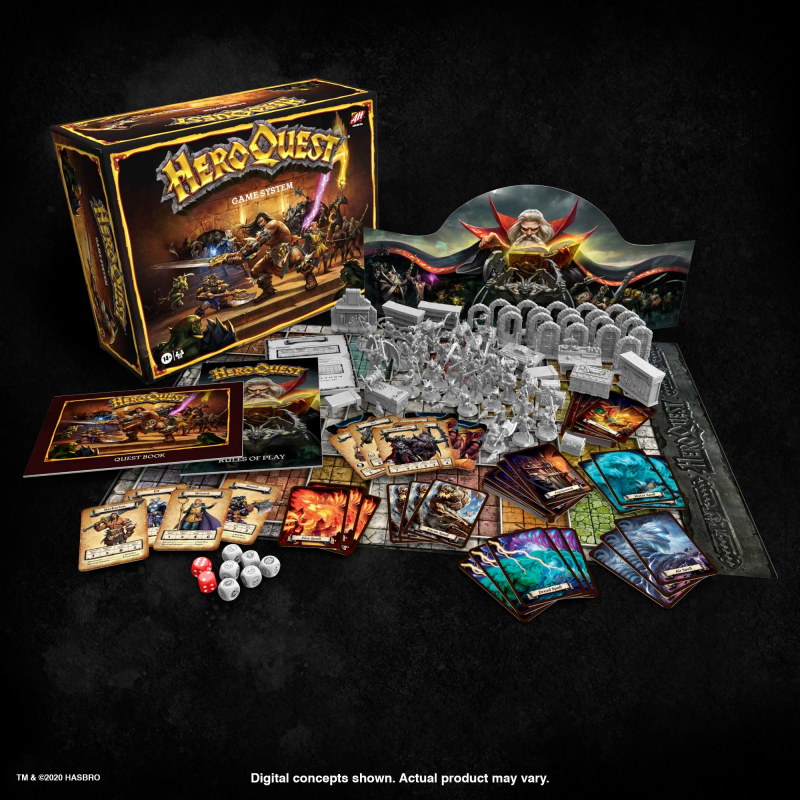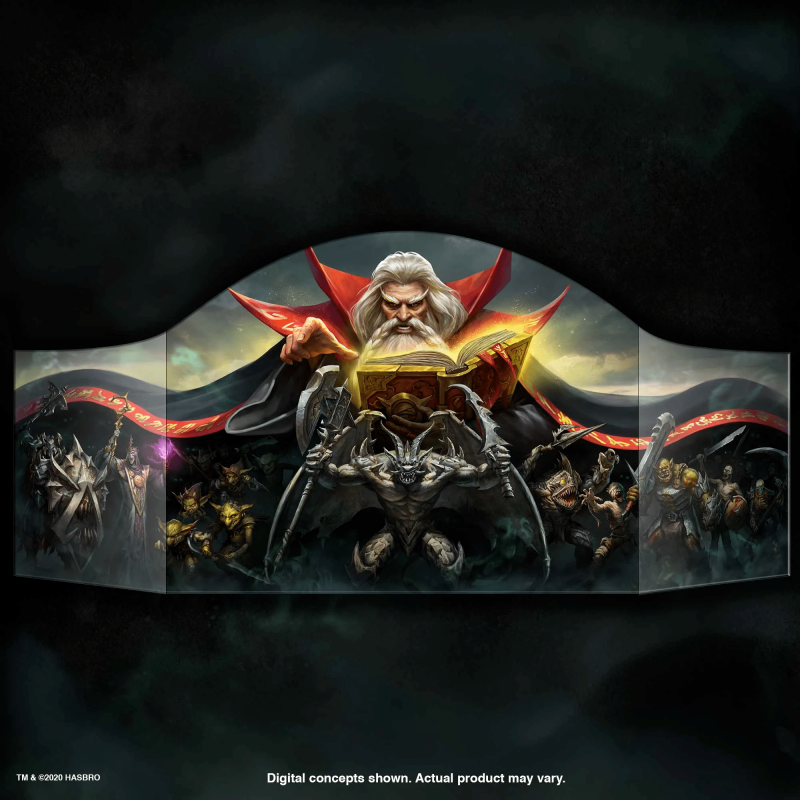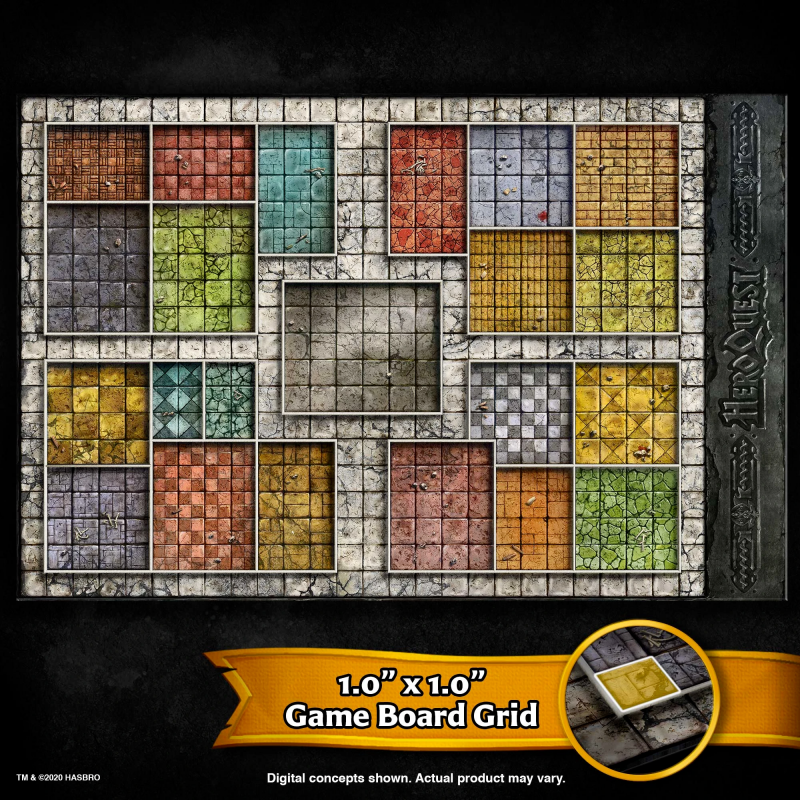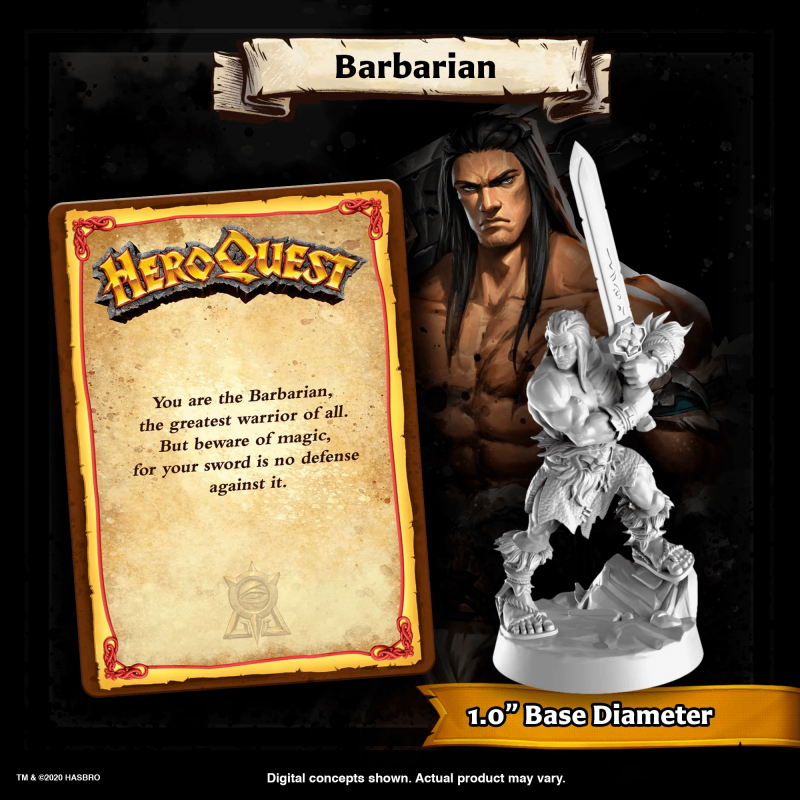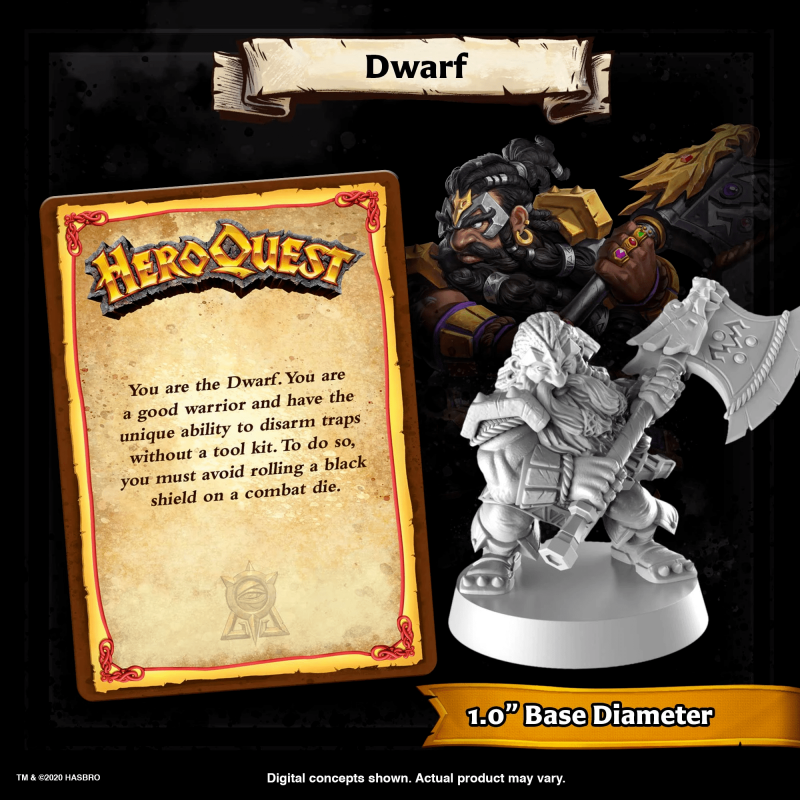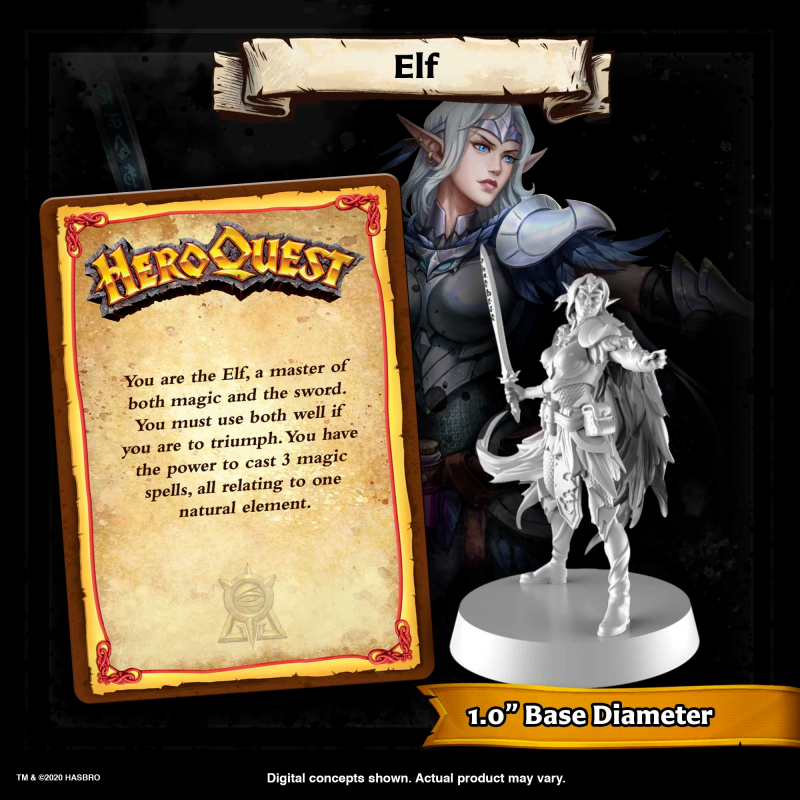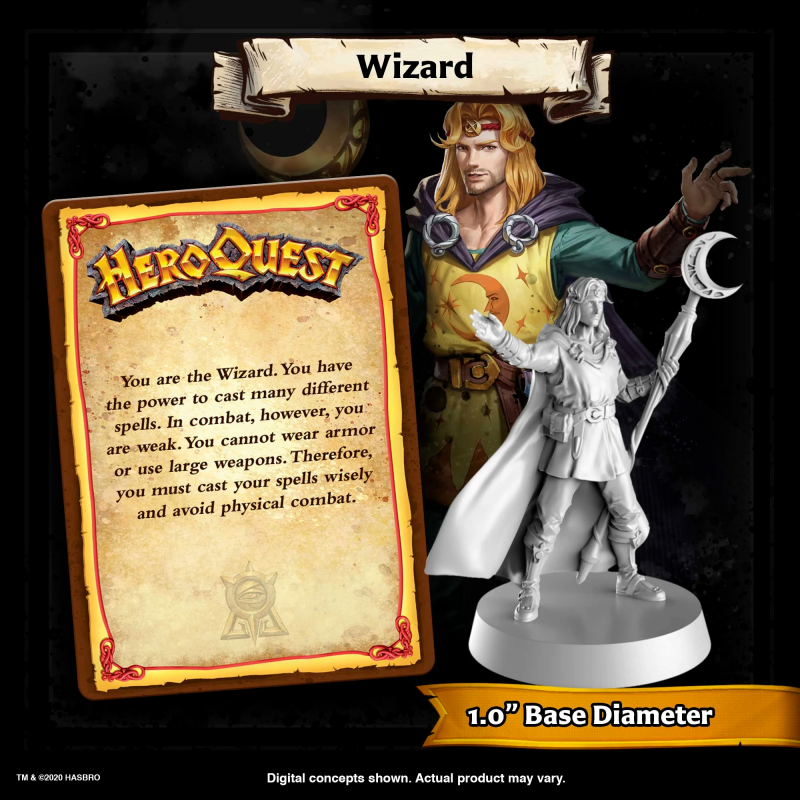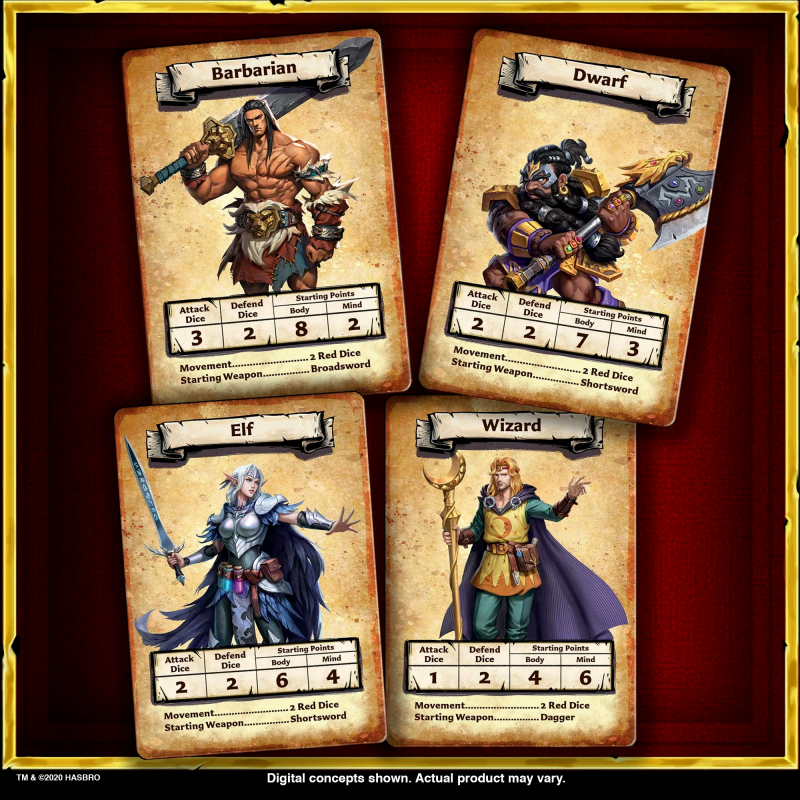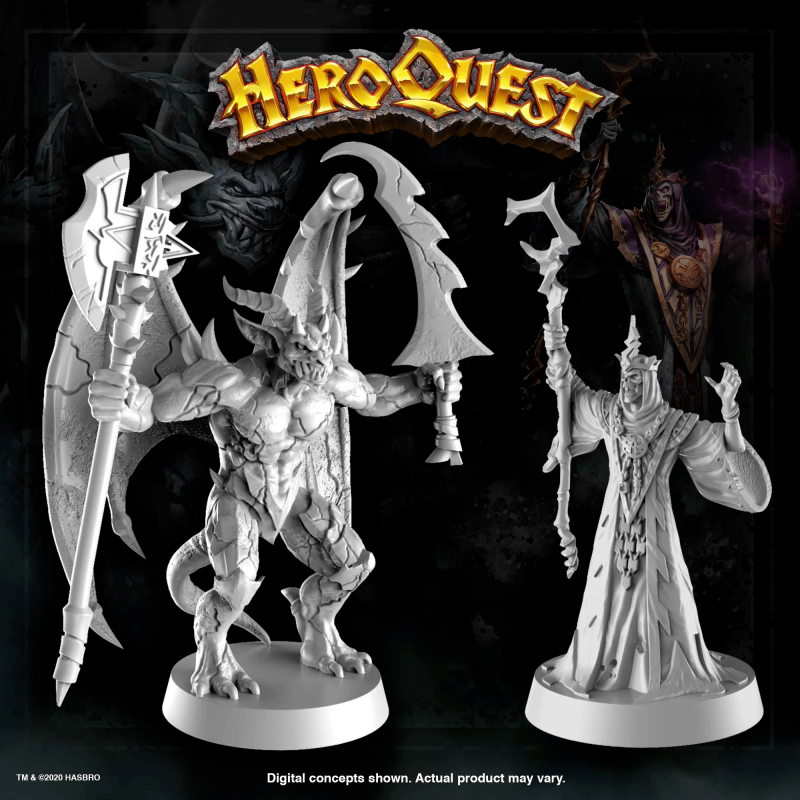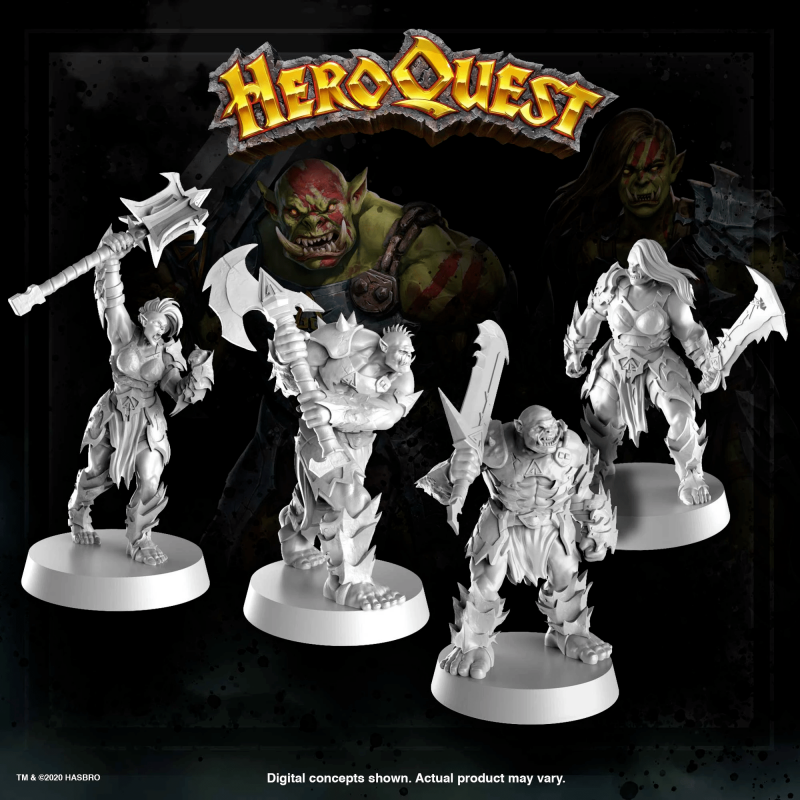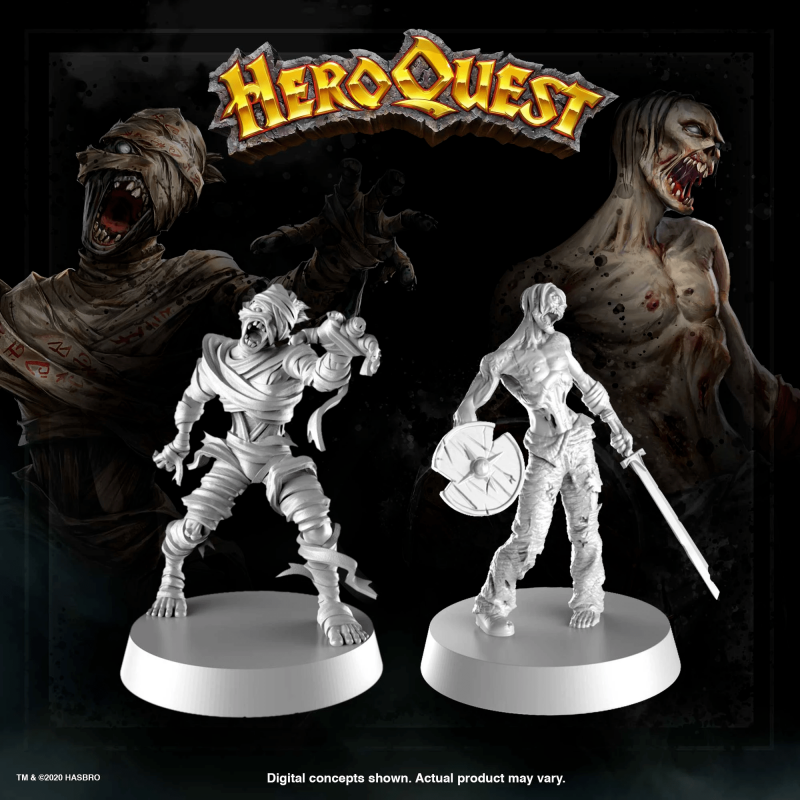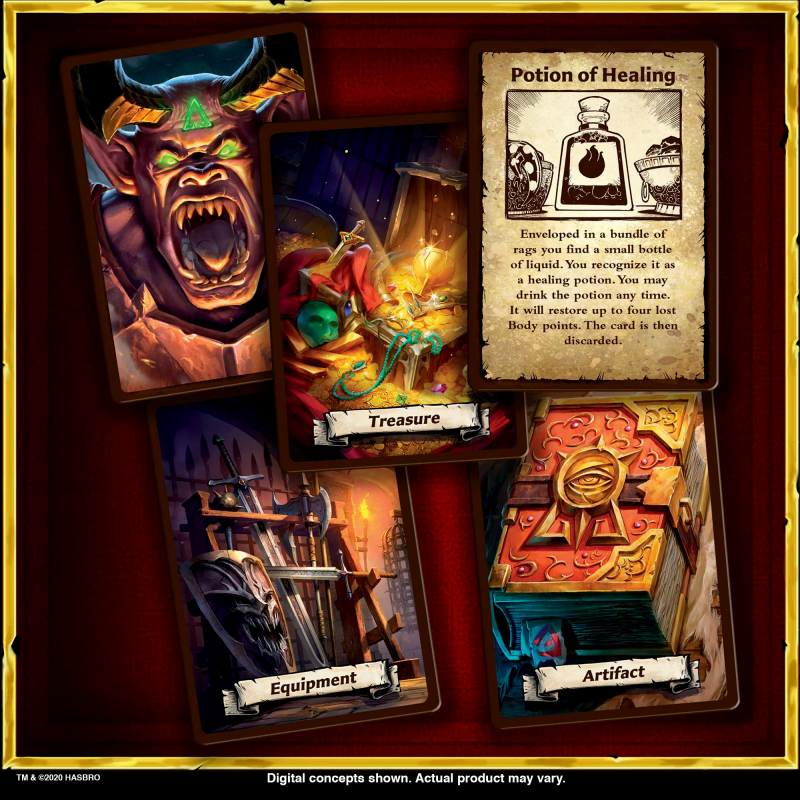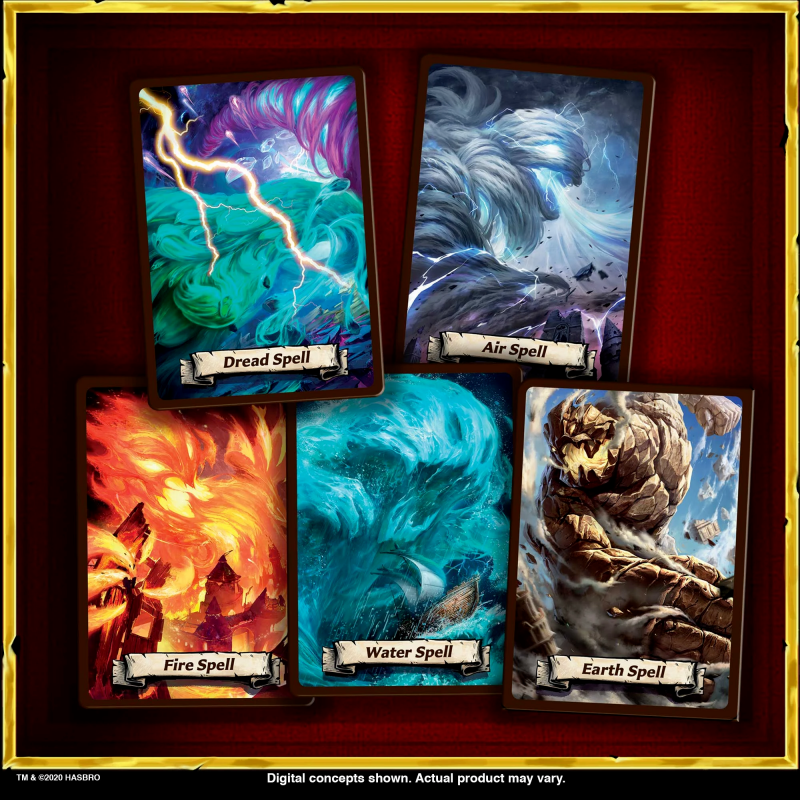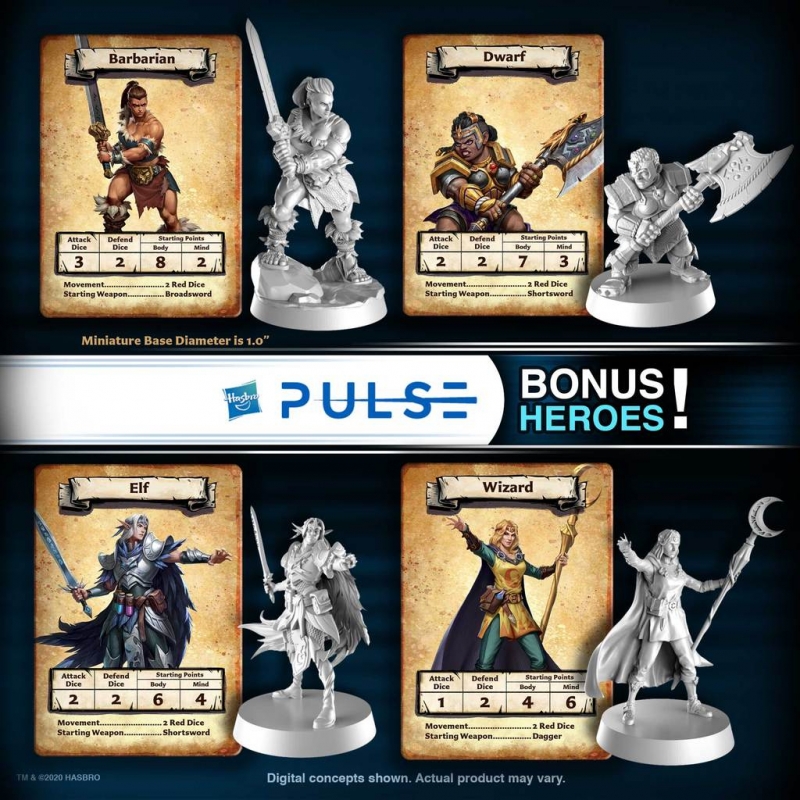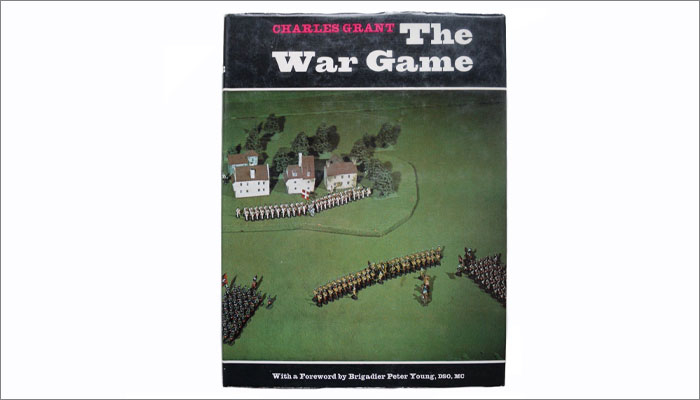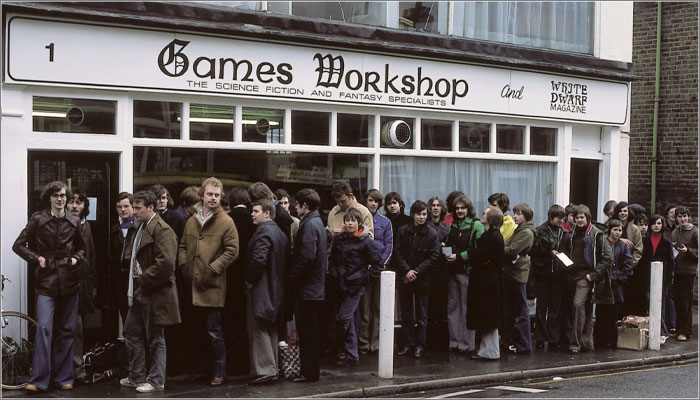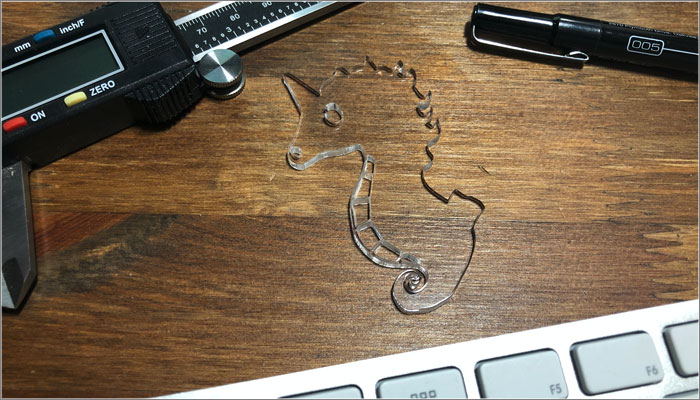Cerca nel Forum
Mostra risultati per tag 'stephen baker'.
Trovato 8 risultati
-
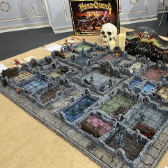
Le novità di Steve Baker nel forum!
legolas777 ha pubblicato una discussione in Il nuovo HeroQuest - Avalon Hill
https://forum.yeoldeinn.com/viewtopic.php?f=143&t=5569&start=300&fbclid=IwY2xjawKcbPtleHRuA2FlbQIxMABicmlkETFqZzVyd2d2aDV0UG9WMVBWAR5svBNHiRIdZCdv3H6kB9_HarPXXo-b_zxSYfeBaAMkTXEiJK7zz26lgtmG0w_aem_RvrJ4uktDxInS_HrvE_Lig Stephen Baker » May 18th, 2025, 4:40 pm I am working on an in-depth interview talking about HeroQuest, Space Crusade, and Battle Masters. It is expected to be released later this month or in June. I will post a link once I know for sure. I still have my original notes, hand-drawn maps, and prototype from when I designed HeroQuest. Some of the original character names and locations were modified when GW reviewed the copy to give it a more Old World feel. Without a doubt, Hero Quest utilized place names, characters, and creatures from GW's Old World, but there was no attempt to specifically place the adventures. There never was a HeroQuest bible, and the out-licensing team operated in partnership with the Marketing team, not Design. I had some visibility and remember being given the draft copies of the adventure novels to review as a courtesy. -

remake E' uscita la training quest Rogar's Hall di Stephen Baker!
Chainer ha pubblicato una discussione in Il nuovo HeroQuest - Avalon Hill
Training Quest - Rogar's Hall https://heroquest.avalonhill.com/en-us/article/heroquest_rogars_hall Quest in "regalo" direttamente dalla pagina di https://heroquest.avalonhill.com/ Ho letto ora per bene... sembra che manchi la lettera "G" nella mappa! iniziamo bene! 🤦♂️- 23 risposte
-
- game system
- heroquest avalon hill
-
(and 3 più)
Taggato come:
-
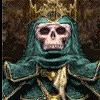
quest book Prophecy of Telor by Stephen Baker
lestodante ha pubblicato una discussione in Il nuovo HeroQuest - Avalon Hill
Un grazie ai ragazzi di La Mazmora de Pacheco che sono riusciti a catturare qualche screenshot della Hasbro Pulse Con (dato che il video live una volta terminato è stato nascosto o rimosso del tutto). Qui di seguito vi riporto il testo introduttivo di "Prophecy of Telor", il nuovo questbook scritto da Stephen Baker che sinceramente credo sarà la parte più interessante di tutto il nuovo pacchetto. La storia si ricongiunge con la quest Il Labirinto di Melar presente nel questbook del set base, rivelando nuovi misteri. Forse potevo metterla nel post calderone dedicato alla nuova edizione ma ho preferito creare un post a parte così quando uscirà ufficialmente il questbook potremo discuterne qui. Lasciamo che il questbook si introduca da solo con le parole di Mentor: Prophecy of Telor by Stephen Baker Mentor's welcome is distracted. As you enter the study the wizard glances you, noddling slightly then continues to stare deeply at the pages of the open book. It is Mentor's legendary artifact, the fabeled book of prophecy known as Loretome. There is a brief silence. Finally, with a grim face, the wizard looks up, eyes still focused on a distant thought. "Apologies my friends." Closing the great book, Mentor walks around the oaken table to stand before you. "I am troubled. The pages in Loretome rarely reveal everything to me. The text and symbols always shift, shimmer and move as future possibilities ripple with each passing moment. But not today. Today is different. The manuscript is like liquid. The words and symbols like formless ink that swirl slowly within the page. If I focus my power, they take shape for a single moment. There is but one word. One name. Melar. You will recall some time ago I summoned you to recover the Talisman of Lore from the heart of Melar's maze. I thought it might shed some light on what Melar had embarked upon. I did not tell you then of my suspicions that Melar was exploring with magic beyond his own. Researching something, something dark. I had sought to meet you but Melar delayed my request then vanished before we could speak. The maze and tower above fell to ruin and where abandoned. There must be something else, something I have overlooked. Dread magic is at play here. For the pages of Loretome have never before been so affected. I must explore this further. You my friends must return to Melar's maze. There you must explore all that remains of the library, search the laboratory and explore the Tower above on the cliffs of Turekk Tor. I will guide you as best as I can, but with the pages of Loretome in turmoil my help will be limited. When I can, I will use my Far Voice spell and speak with you directly at the key points along your journey. Hurry my trusted heroes. Hurry. For without Loretome's read into the future, the Realm is in peril and the forces of Zargon move UNSEEN."- 130 risposte
-
- game system
- hasbro
-
(and 3 più)
Taggato come:
-

heroquest avalon hill The Prophecy of Telor & The Rogue Heir of Elethorn - Hasbro & Avalon Hill: Video
Flash ha pubblicato una discussione in Il nuovo HeroQuest - Avalon Hill
Ecco anche il video su YouTube con la prima quest dell'esclusivo questbook del Mythic Tier creato da Stephen Baker, del remake di HeroQuest - Game System, The Prophecy of Telor da parte di Hasbro ed Avalon Hill. Sempre come una sorta di unboxing e playtest! HeroQuest & Rogue (2021): The Prophecy of Telor - Quest 1 - Return to Melar's Maze- 3 risposte
-
- game system
- mythic tier
- (and 3 più)
-

remake Tutte le immagini del remake di HeroQuest Game System by HasLab
Flash ha pubblicato una discussione in Il nuovo HeroQuest - Avalon Hill
- 21 risposte
-
- game system
- hasbro
-
(and 3 più)
Taggato come:
-
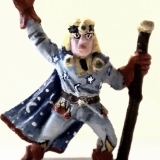
remake Unboxing New HeroQuest Game System
Andros84 ha pubblicato una discussione in Il nuovo HeroQuest - Avalon Hill
Il primo di una lunga serie di video di unboxing: Se devo dire la mia... la qualità di base (livello di dettagli ad esempio) non è eccelsa ma accettabile visto anche che l'uso della plastica morbida credo abbia messo un limite. Sta plastica morbida è un limite che non avrei preferito (per dire, sto prendendo anche miniature in resina...) ma lo apprezzerò forse quando ci giocherò in famiglia. Non so in questo video, ma in altre foto che ho già visto ho notato delle sbavature nella stampa e qualche mobile mi pare leggermente imbarcato. Questi difetti li trovo molto deludenti. Passi la qualità di base non al top, ma a quel prezzo di difetti di produzione proprio non ne tollero... Difetti a parte direi senza gloria né ignominia, il ché per me è già bene confrontandolo col "vecchio".- 50 risposte
-
- game system
- hasbro
-
(and 3 più)
Taggato come:
-

heroquest avalon hill I nuovi personaggi inediti
lestodante ha pubblicato una discussione in Il nuovo HeroQuest - Avalon Hill
Hanno pubblicato aggiornamenti sul personaggio inedito del Warlock creato da Shauna Nakasone. Ho creato un post apposito (incluse le carte) per chi volesse già testarlo ed esprimere le proprie impressioni. qui il link al post sul personaggio:- 32 risposte
-
- eroi
- game system
-
(and 3 più)
Taggato come:
-

remake Intervista a Stephen Baker by Mojo Nation (Ottobre 2020)
lestodante ha pubblicato una discussione in Il nuovo HeroQuest - Avalon Hill
Intervista a Stephen Baker pubblicata su Mojo Nation qualche giorno fa: https://mojo-nation.com/heroquest-inventor-stephen-baker-creative-process-designing-legendary-game-upcoming-revival/ Di seguito riporto il testo intero per evitare di perderla qualora venisse in futuro cancellata dal sito Mojo Nation. HeroQuest inventor Stephen Baker on his creative process, designing the legendary game… And its upcoming revival (19th October 2020 by Deej Johnson) Few games are as beloved as the 1988 classic, HeroQuest. We caught up with the HeroQuest hero himself, inventor Stephen Baker. Here he tells us about his creative process, designing the game… And its 2020 revival. Stephen Baker! Pleasure to catch up; thank you for making time. Let’s start on the obvious place… How did you get into the games industry? My lifelong passions developed early on. As a boy I was keen on history, modelling and games. I would make model tanks, planes, and paint plastic soldiers. My friends and I would play simple stand ’em up, knock ’em down type games. Just with the models; no dice or cards or anything? No, not at first! However, this damaged the models and chipped off the paint. So I soon made up some rules. These were all very basic and included cardboard templates for movement, and simple dice rolls for shooting. My dad then found a book at the library called The War Game by Charles Grant. That book, which I still have, changed everything. It was 1973 and I was nine years old. I know The War Game was something of a bible back then. What was it, exactly? Not just a set of rules I understand? No, The War Game wasn’t just a set of rules! It provided a high-level overview for warfare in the eighteenth century. Grant then shared his thought process and method. He outlined how to convert the realities of troop organization, troop manoeuvres and rate of fire into game rules based on ground scale, troop ratios and the time each turn represented. So it’s really how to play war games based on historic principles? Exactly. And the idea you could take something real and interpret a representative play experience like that fascinated me… I began designing games for other time periods, and for sports – anything that interested me. And this held your interest throughout your teens, too? Absolutely. Later, when I left college, I went to work in a bank. However, at the weekends I worked at the London Games Workshop store in Dalling Road. Oh, wow. The very-first store? Kudos! When the opportunity came to become full time, I jumped at it… Much to the concern of some friends and family! But things worked out; I quickly became the manager. One day, I was contacted by someone from Milton Bradley. They were looking for some game pieces. As we talked further, they asked if I’d be interested in doing some playtesting for them. I took a few days off and spent three days playing games and writing reports. On the final day, they asked if I wanted to join as an Associate Games Designer. Of course, I said yes. That’s a heck of a story! And you sound very energised by it; very passionate. Let me ask you this: of which work are you most proud? I don’t know that there’s a single product or project that I’m most proud of. What does give me a great sense of pride is what I do; what we all do in this industry… We make smiles. We craft fun that brings people together. Deliver experiences that will be remembered. We enable people to explore, to create and to imagine through play. I love being part of an industry that puts more smiles into the world than we take out of it. We’re a positive influence. Fantastic! I think that’s a difficult question; you’ve breezed it! So… Okay. You’re probably best-known for the game HeroQuest. It’s Milton Bradley’s approach to Dungeons and Dragons, working with Games Workshop. For those that don’t know it, can you give us some background? Sure! My initial vision for HeroQuest was “role-playing in a box”. It’s still the way I describe it to people today. The goal was to give players who’d never experienced role-playing their first taste of adventure gaming. Which is more or less how I’d describe it; a gateway to that style of game… Right. So I wanted to simulate all the attributes of a role-playing game. I wanted to provide miniatures and 3D dungeon terrain. Just as I was inspired as a boy by images of grand wargame tables, beautiful terrain and large, painted armies, I wanted the game to be a spectacle. I wanted maximum visual appeal that would inspire people to want to play. And what was your biggest challenge working on the original? Managing cost and keeping it simple! As an example, the early versions of the game had room and corridor tiles. That seemed the obvious way to go. It gave maximum flexibility for quest layouts. However, when I play tested with kids it was just too much. Given all the pieces, it took too long to reveal what was round the next corner, and it was too easy to make a mistake and place the wrong tile. Okay… That’s when I decided to have a set gameboard. People understand a gameboard; it felt more familiar and took away a lot of time trying to find the right tile. Every quest was now the same template. This was easier to manage in the page layout for quests. It was much faster to set up the board as the players journeyed through the game. Which is interesting to me; the idea of a welcome solution hiding in a limitation… Well, likewise, I’d originally planned a three-panel gameboard. I had it similar in size to the old Gamemaster games like Axis & Allies. Unfortunately, I had to reduce this to a standard two-panel board for cost reasons. No point having a huge dungeon if you can’t afford monsters to put in it! And with each iteration of the game, I simplified it more. I wanted maximum experience for the least number of rules. You might be interested to know that – in a recent set of Mojo Nation interviews – two out of four guests picked HeroQuest as the game they’d most want with them on a desert island! Do you get that sort of thing a lot? Happily, I’ve had many people over the years reach out to me to say how much they loved playing HeroQuest when they were younger! People often tell me it was the game that got them into role-playing, or the game that made gaming their hobby. Given the colourful look of the overall game, many people were inspired to paint the miniatures, so for some this was also the game that inspired them to get in to miniature gaming. And if you had to guess, why, do you think, it’s so beloved? I guess it was the first game of its kind, and unlike anything that was on the market at the time. It was like a miniature stage on which the players own adventure story would be told. In the simplest way possible, it delivered narrative, characters, adventure, tricks and surprises. It was an uncomplicated contest between the heroes and the monsters. This was all a new and unique experience for many kids and their families. I think this is why it remains such a treasured memory for so many. Dare I ask… How does it feel to see HeroQuest coming back? It’s a little surreal. I first started designing the game in 1988. It’s definitely the game people talk to me about the most. Hasbro contacted me earlier this year and asked if I’d be interested in writing a bonus Quest Book. I was delighted to hear they were bringing the game back, and honoured to have the opportunity to play a small role in its relaunch. Going back through the rules and all the past quest materials certainly brought back a lot of memories. And what was your biggest challenge working on the new version? I don’t think it was a challenge! I had some homework to do. It had been quite a few years since I’d really familiarised myself with all the game elements. What was notably different is the means by which I created the Quest Book. When I was designing my first quests – 30-odd years ago – everything was pen and paper. I literally wrote out the materials… Oh, my! I hadn’t thought, but yes; this was before desktop publishing?! Yes! So I cut and pasted photocopies of hand-drawn symbols onto printed board templates. Making things larger or smaller was done through percentage changes at the copier. It was definitely old school! Amazing, though… Fast forward to today, and I can create a finished Quest Book that looks no different than the originals. However, while the tools have changed, the process remained the same. I scoped out a rough story. Broke it down into chapters and used these as the script for each quest. I challenged myself to use the board in some new and different ways. I planned how I’d add those surprise moments for the heroes… I wanted returning players to experience once again the heroes’ shared, excited reaction as they opened the door and found what lay beyond. HeroQuest aside, in which other games have you had a hand? I’ve worked on many games over the years. I spent 26 years at Hasbro over a 35-year period… 17 of those were spent as part of the Games team, first in Europe and later the US. During that time, I worked on just about every Hasbro game brand. But you’re not at Hasbro now? No. I left Hasbro in September 2019; since then I’ve been partnering a number of other designers and inventors around the world. I also do a little freelance game design and consulting. Terrific! Hey, feel free to give yourself a proper plug. Some of my articles attract upwards of a dozen views… Well, if any of your dozen readers are interested, they’re welcome to contact me at stephen@stephenbakerdesign.com, or find me on LinkedIn. I enjoy meeting and working with new folk, and am always happy to talk about games. You say that… Perhaps I should’ve warned you, eight of those people are loons! Let me ask you this, though: in terms of your creative process, how do you generate ideas? How do you develop them? I use a number of different methods. Even when working alone, there needs to be some process. I like to create a bunch of high-level ideas. These are not full concepts. It’s a name with a few lines to describe the essence of the experience, along with a sketch or two. Very rough thumbnails. Without any filtering, presumably? No, at this stage I don’t judge; I’m just trying to create a bunch of ideas.The goal is to capture an idea quickly in a way that allows me to return to it later. Then I filter. Here I’m looking to find the ideas that seem to have the most value… Sometimes ideas merge or morph into something a little different. I’m also doing some light research to make sure an idea is sufficiently unique. And what happens next? Presumably you pick some ideas over others? Yes. Once selected, I add ideas to my active-project list and plan how much development time to invest in getting a first prototype. I like to have structure to my week, and find it’s important to set myself targets and dates. That all being said, there are also days when a thought pops into my head over morning coffee. The rest of the day is then a frenzied pursuit of that idea! Forced into a cul-de-sac of immodesty, what one piece of advice would you give other designers? A game is only as good as the players say it is. Playtest, and listen to feedback. We touched on this earlier: sometimes the thing that needs to go is the thing you like the most. Don’t be too precious with your ideas! Right. It’s only very-new or very-doomed inventors, I think, that absolutely cleave to one idea… I always say, “Anything is possible, everything is not.” Early on, as your idea takes form, make sure you have a clear sense of who you’re designing for, what you imagine the likely play scenario to be, and the attributes of the experience you’re trying to create for your audience. If you’re just adding clay and you haven’t formed the underlying wire armature, the end may not live up to your expectations – or those of your players. Great analogy! Love the saying, too. And finally, I would say don’t worry if early playtests don’t work well. You have to get it wrong before you get it right. Excellent! This has been very insightful, Stephen, and I’ve taken a lot of your time so we should probably wrap this up… I’m curious, though, what question have you never been asked in an interview that might be fun to answer? And what is the answer? The question would be… “If you could meet anyone past present or future who would you like to meet?” Now, people who know me would say my answer would surely be Napoleon. But it’s not. My answer would be Charles Grant. It would be cool to let him know how much his books inspired me. Cooler still to stand across the table and refight one of his classic battles. Great answer… Finally, then, what’s the most interesting thing on your desk? It’s an interesting question. As I looked around for an answer, I saw a small clear acrylic seahorse. It is a simple design, one that my youngest daughter drew. I then converted the linework into a PDF and laser cut the image. She was thrilled to see her creative work materialise into a tactile, tangible object. I equipped a small studio when I set up my company. I have a large-format printer, 3D printer and laser cutter. As designers, we often take all the maker technology for granted. But for kids, it’s still a source of great wonder. Again, you sound very passionate; I hope it comes across to those twelve readers! Any last thoughts for them? The world of gaming has never been stronger. There are more games being created and more games being played by more people than ever before. Some of these players will be inspired to design their own. I encourage them to do so. Become a smile maker.-
- game system
- heroquest
-
(and 3 più)
Taggato come:

.thumb.jpg.05274f374e0e172100eca6332eb91057.jpg)

